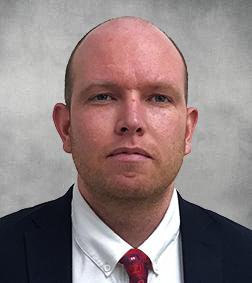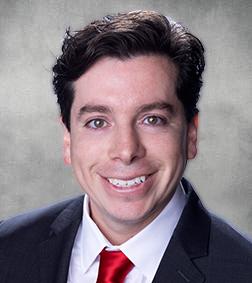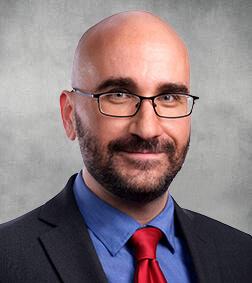Florida Juvenile Crimes Lawyer
Backed by Decades of Collective Experience
Youth make mistakes; that is part of the growing up process. Occasionally, those mistakes, or simply being in the wrong place at the wrong time, violate state or local laws and can even result in the injury or death of other individuals, whether or not it was intended.
If your child has been arrested for a crime in Florida, they face potentially serious consequences. Should your child be convicted of a juvenile offense in Florida, it may mar their reputation and create problems in their adult life. The juvenile justice system is different from the regular criminal justice system, but that does not necessarily mean that it is always more lenient. The protection of a child’s future is a parent’s top priority and, at Musca Law, it is also our priority.
Begin Your Fight For A
Secure Future With Our Firm.
Contact Us Today
Juvenile Justice System
The only differences between juvenile offenses and crimes committed by adults are that juvenile offenses are committed by minors rather than adults and the justice system employed for prosecuting such offenses is based on a different set of procedures. Contact with law enforcement as the result of an offense could result in a civil citation or an actual arrest.
After a juvenile is arrested and taken into custody, a number of things could happen, including referring the case to the adult court system, depending on the severity of the crime. The juvenile could be formally detained in a secure detention center for up to twenty-one days before their court hearing. Once the case is in court, adjudication may be withheld, placing the youth in a community supervision program, or the court may pass judgment, placing the youth in a secure residential commitment facility. If a juvenile is convicted of the offense, it will likely remain on their record unless steps are taken for the sealing or expunction of that record.
How Juvenile Court is Different than Adult Court
Circuit courts in Florida hear all matters where a minor is alleged to have violated the law. Violations of a law are brought forth by a complaint that is filed by a police officer regarding a misdemeanor, felony, violation of a local ordinance, or contempt of court.
A juvenile case is typically a matter handled by the civil courts, not the criminal courts. However, if a juvenile is arrested and found guilty of a crime, under Florida law, the consequences are similar to a criminal proceeding. Specifically, the minor can be convicted and face imprisonment, probation, community service, residential programs that remove the minor from his or her home, and the payment of restitution to his or her victims.
Children under the age of eighteen do not have all of the same legal protections as an adult does in defending himself or herself against exaggerated or false accusations. Also, in a juvenile matter, there are no jury trials; only a judge hears the case.
In the event that the case proceeds to trial, the judge will determine whether the minor is guilty or innocent. Minors have the right to an expeditious trial, requiring the Assistant State Attorney to bring the case forth within 90 days of the time that the petition was filed or when the minor was initially arrested, whichever happened first. Under certain circumstances, the right to an expeditious trial is waived.
The Juvenile Court Referral Process
Once the minor is placed under arrest, he or she will be transported to a Juvenile Assessment Center (JAC) where it will be determined whether or not the minor should continue to be detained.
Following the initial arrest and subsequent detention, the minor will be transported to a county-run juvenile detention center where the alleged crime happened. At this time, staff at the JAC notify the minor’s parent(s) or legal guardian(s).
In several instances, especially if the minor is alleged to have committed a certain type of misdemeanor or felony, the releasing officer in addition to a counselor with the Department of Juvenile Justice (DJJ) will issue the minor a “Juvenile Notice to Appear.”
The purpose of the Juvenile Notice to Appear is to direct the parent(s) or legal guardian(s) of the minor to take him or her home and to ensure that he or she appears at his or her arraignment.
This document also indicates that if the minor does not appear at the arraignment or additional appearances or conferences as set by the court or the DJJ, he or she will be sent to a juvenile detention center.
The DJJ may also ask a parent or legal guardian of the minor to sign a statement of authorization and use of social security numbers. The information in this form is only used to positively identify the parents and determine eligibility for Medicaid.
In the alternative, following the time in which the child is detained, he or she will be required to go before a judge for a detention hearing. During this time, the minor’s attorney can request that the child be released from the detention center during the pendency of his or her case.
Juvenile detention centers serve to detain a minor before his or her case is resolved. If the minor receives a guilty verdict, he or she can be sent to a non-residential or long-term residential program, pursuant to the discretion of the judge.
Juvenile Offenses We Handle
The type of offense a juvenile is charged with, and the juvenile’s prior history will determine what penalties he or she will face. The more severe the alleged offense, the more fervently prosecuted.
We aggressively represent those accused of juvenile crimes including the following:
- Underage drinking
- Vehicular homicide
- DUI
- Drug possession
- Drug trafficking
- Sexual assault
- Solicitation
- Sexual battery
- Prostitution
- Sexual crimes against children
- Traffic Offenses
- Shoplifting and other theft-related offenses
- Burglary
- Robbery
- Arson
- Assault
Facing the consequences of a Florida arrest is difficult enough as an adult, but is even more intimidating and confusing if you are a minor. Make no mistake, being arrested for a juvenile offense is serious and can carry more consequences than just a slap on the wrist. What you do immediately following an arrest can make the difference in dropped or reduced charges and a conviction.
Taking Child Offenders into Custody in Florida
Based on the information provided in Florida Statute XLVII 985.101, police must adhere to the following procedure when detaining a juvenile offender:
- The officer shall adhere to all orders issued by the circuit court.
- In the event that the child has committed a crime that would be categorized as a felony (for an adult), the arresting authorities will notify the superintendent (or the official’s designee) of the culprit’s school district. All information of this nature must be released to the school district no later than 48 hours.
- Arresting officers cannot put juvenile offenders into the same vehicles as adult offenders who have also been placed under arrest.
Keep in mind that taking a child offender into police custody is not regarded as an arrest, by law.
Reviewing the Details of Case Management for Juveniles in Florida
As indicated by Florida Statute Title XLVII Chapter 985.14, the department will assign a child criminal to a juvenile detention officer if the youth was not:
- Released from police custody
- Sent to take part in a diversionary program
- Sent to take part in community arbitration
- Sent to a department as part of judicial handling
Overall, juvenile assessment personnel supervise all activities surrounding the intake process as part of the case management system. As part of this initiative, supervisors will determine the needs of juvenile offenders to create a non-problematic program and location to account for these requirements. Intake typically involves a screening and (possibly) comprehensive assessments, which may also include:
- Full-length mental health screening
- Assessment of cognitive impairments
- Establishment of previous substance abuse or addiction
- Evaluation of psychosexual activities
Criteria for Sending Children to Juvenile Detention
In accordance with FS Title XLVII Chapter 985.24(1), court orders and findings surrounding a crime committed by a juvenile offender will be based on findings that prove (without a doubt) that the child in question:
- Will not potentially appear at a hearing.
- Is a high-risk individual who can potentially harm other people (as demonstrated by the recent use of firearms or other violent behavior).
- Has previously committed offenses related to property damage (prior to arrest or adjudication).
- Has been held in contempt of the court by interrupting or disobeying court orders.
Under Chapter 985.24(2), a child who has been arrested for committing a delinquent crime or an act of violence in the State of Florida will not be sent to a secure detention center for the following reasons:
- To help a parent (or parents) avoid responsibilities regarding the care of the child
- To allow for convenient access to the child
- To allow people to interrogate the child and investigate his/her crime further
- To compensate for the lack of more effective facilities
Determining if a Child Should be Sent to Juvenile Detention
As indicated by FS Title XLVII Chapter 985.255 (1), any juvenile who is taken into police custody and sent to the care of detention officers will be granted a court hearing after a period of 24 hours. As part of the hearing, court officials will determine if the juvenile requires further detention time if the convict:
- Recently escaped from a residential commitment program (or absconded).
- Performed a criminal act that would be judged as a felony (if committed by an adult offender).
- Took part in an act of delinquency that threatened his or her safety.
- Has been charged with possessing and/or using a firearm on the grounds of a school.
Convicting the Juvenile as an Adult Offender in Florida
As reviewed in FS Title XLVII Chapter 985.56(3), if the courts have found the juvenile offender guilty of a crime that can be punished by life imprisonment or (in the most severe cases) the death penalty, the offender will be processed and sentenced in the same manner as an adult offender. Once the court has issued its sentence, the juvenile offender will be handled like an adult outside the juvenile court system. Further cases concerning this individual will be handled in regular court.
A crime of this nature may include a felony.
Understanding the Role of Parents/Guardians in Juvenile Offenses
As directed by FS Title XLVII Chapter 985.513(1 a-b), any court that maintains control over a juvenile offender may order the parent or guardian of the child to:
- Take part in community service as part of a public service program (if the parent/guardian did not put forth his/her best effort to prevent the juvenile from taking part in delinquent activities).
- Put forth a certain amount of money to compensate for damages or losses caused by the juvenile’s criminal activities.
Details about Detention of Juvenile Offenders in Florida
For more details about the processing of juvenile offenders, please review the Department of Juvenile Justice’s page for youth detention.
The Juvenile Detention Center Process
Within 24 hours of being transported to a JAC, the minor will face a judge for his or her detention hearing. At this hearing, a minor can be represented by an attorney.
During the hearing, the court will evaluate the specific allegations, the minor’s history, and other facts to render a determination as to whether further detention is necessary, or if the minor should be subject to the custody of his or her parent(s) or legal guardian(s), or placed on home detention.
Under some circumstances, the minor is sent home to his or her parent(s) or legal guardian(s) prior to when the detention hearing is held. Even then, the minor and his or her parent(s) or legal guardian(s) must attend the detention hearing which is held the next morning. The judge has the discretion to either release the minor or decide to order the minor to be detained for an additional 21 days.
A Summary of the Juvenile Intake Process
A Florida Juvenile Probation Officer (JPO) will start the intake process by examining the report issued by the officer who arrested the minor. The JPO then contacts the family of the minor to request further information about him or her, which includes school records, family history, and other activities.
At this time, an attorney for the minor can provide the JPO with favorable information on behalf of him or her, as well as certain mitigating factors that may lessen the punishment sought to be imposed. Such information is used by the JPO to make a recommendation to the juvenile court as to how the juvenile’s charges should be resolved.
The recommendation and intake report issued by the JPO addresses the wishes of the alleged victim(s), the risk to the community, the type of offense charged, and the needs of the minor. This recommendation and intake report is then sent to the State Attorney’s Office for review.
Diversion Programs for Juveniles
Should the JPO recommend a program that is non-judicial, also referred to as a juvenile diversion program, this is then examined by the Assistant State Attorney who has been assigned the matter.
If the Assistant State Attorney consents to the minor participating in a non-judicial intervention program, then he or she as well as his or her parent(s) or legal guardian(s) must provide their signatures on certain documentation. At this time, the right to an expeditious trial is waived. An agreement is then drafted that provides all of the requirements for the program, which must be signed by both the minor as well as his or her parent(s) or legal guardian(s).
If the minor successfully completes the program, then the Assistant State Attorney takes no further actions to handle the case. If the minor does not complete the program successfully, then the Assistant State Attorney will then file a formal charge with the court, known as a petition.
Prevailing at Trial in Juvenile Case
In preparing for a case, the Florida criminal defense attorney is able to speak with witnesses, including teachers, public school resource officers, other children, neighbors of the minor, and school administrators.
If an allegation of a felony offense is brought forth, the juvenile’s attorney may depose all witnesses involved. Once a complete investigation of the State’s witnesses and evidence is complete, the juvenile’s attorney can also bring witnesses forth as well as evidence to support the minor’s side of the case. The minor’s defense attorney can also file motions to dismiss the case or to suppress evidence. A dismissal of the case typically occurs if the minor was falsely accused of committing a crime.
If the matter goes to trial and the minor is acquitted, it is deemed resolved and his or her criminal record will be placed under seal.
Sentences Imposed Following a Guilty Verdict
If the minor is found guilty of the allegations against him or her, the following consequences may be imposed, all of which depend upon whether the offense charged is a misdemeanor or felony:
- Residential or non-residential treatment;
- Probation;
- Judicial warning; or
- Adult sanctions, should the minor be tried as an adult.
A Sentence of Probation for Children Under the Age of 21
The court can order the minor to probation after being found guilty of the offenses with which they were charged. The purpose of probation is to supervise the minor and restrict his or her activities and freedom.
A probation sentence usually requires that minor to be subject to certain conditions such as community service. Another common condition of probation is also attending mental health counseling, whether it is for substance abuse or anger management.
The court can a treatment program as well as a daily curfew, which allows for further supervision of the minor. For certain crimes, the court can require a minor to provide a DNA sample for testing.
The Violation of Juvenile Probation
Once probation is ordered by the court, a Juvenile Probation Officer (JPO) is assigned to the case. The JPO supervises the minor to make a determination as to whether he or she is following the probation conditions. The court will require the minor’s parent(s) or legal guardian(s) to inform the court and the JPO of any violations of probation.
If the minor commits an infraction during probation or does not comply with the conditions of probation, the JPO will then file a Violation of Probation Petition. In this event, the court has the discretion to impose certain penalties on the minor, or order the minor to attend a Department of Juvenile Justice residential program.
Conditional Release and Post-Commitment Probation
Once a juvenile completes his or her residential program, he or she will be under supervision as part of the conditional release or a post-commitment probation. Both the conditional release as well as the post-commitment probation impose certain requirements that may be ordered during probation. Violations of a conditional release or post-commitment probation can result in the minor being placed in a stricter residential program.
Violations of conditional release are subject to hearings conducted by the Department of Juvenile Justice and do not involve the court. However, post-commitment probation violations are subject to the court as the same matter as a regular probation violation.
When a Minor is Charged as an Adult
When a minor is charged with certain felonies, it is possible for the case to be filed in an adult court through either a waiver, indictment, or direct file. Once the adult court assumes jurisdiction over the case, the minor can be tried as an adult and face similar consequences, such as monetary penalties, probation, and time in jail.
In Florida, any individual who is placed under arrest who is aged seventeen or younger is a juvenile. Notwithstanding, juvenile cases can be heard by an adult court. Specifically, any felony that was allegedly committed by a sixteen or seventeen-year-old can be transferred to an adult court. Even a minor younger than sixteen can face adult charges, such as robbery or aggravated battery. Moreover, any crime that was committed using a weapon such as a firearm can be prosecuted in adult court. If the Assistant State Attorney files criminal charges against a minor in adult court, then he or she will be imprisoned in the county jail.
Once the matter is held in an adult court, the minor will then receive a bond hearing under the same conditions as an adult with the same or similar charges. Once a plea is made or there is a guilty verdict, the Department of Corrections will likely file a report that issues certain recommendations to the court with regard to the charges that the minor is facing. Following a guilty verdict, the child could be sent back to juvenile detention, pursuant to the judge’s discretion.
Understanding the Detention Risk Assessment Instrument (DRAI) in Florida
Created more than 25 years ago, the Detention Risk Assessment Instrument (DRAI) created to provide suitable placement for juveniles who have been placed under arrest and screened by screening staff of the department. Ultimately, the staff uses the DRAI to determine if a juvenile should be:
- Sent to a secure detention facility before a hearing for his or her detention.
- Placed in a status of community-based detention (supervised prison release).
- Released without a need for supervision.
About 24 hours after being taken into police custody, the youth offenders are taken before the court, where a judge will consider if the juveniles require further detention supervision.
Keep in mind that the DRAI is implemented by the department and related courts across the State of Florida and utilizes up-to-date information in the juvenile criminal system. For more information about this instrument, review Florida Statute Title XLVII Chapter 985.245 regarding the implementation of juvenile risk assessment.
Reviewing the Juvenile Detention Alternatives Initiative (JDAI)
In association with the Annie E. Casey Foundation, the Florida Department of Juvenile Justice has developed and supported the Juvenile Detention Alternatives Initiative (JDAI), founded on the belief that all youth offenders should have the chance to grow into productive, responsible adults. Launched in 1992, the original JDAI program was set up in urban and rural sections of Florida and was designed to reform and support troubled youth.
Here is a closer look at what the JDAI program entails:
- Protection of public safety
- Prevention of overcrowding in detention facilities
- Allowing taxpayers to save money by reducing the number of facilities
- Implementing efficiency in the juvenile justice system
- Creating a better future for youth offenders and their family members
Reviewing Options for Services and Probation for Juvenile Offenders in Florida
As stated by the Florida Department of Juvenile Justice, juveniles (those under the age of 18) who are convicted of a crime in the State of Florida are directed to the department officials (nearly identical to the processing of adult criminals in the regular justice system). Ultimately, the department will discuss options for the youth offender’s probation and services with the State Attorney and members of the court.
One option provided by the department is the diversion, which provides alternative programs to the regular juvenile justice rulings for youth criminals who have been convicted of mild offenses. Here are some examples of these diversion programs for juvenile criminals:
- Boy and Girl Scouts
- Boy and Girl Clubs
- Civil Citation
- Community Arbitration
- Intensive Delinquency Diversion Services (IDDS)
- Juvenile Alternative Sources Program (JASP)
- Teen Court
- Mentoring
Understanding the Exceptions to the Diversion Programs in Florida
After being released on probation, a juvenile offender will be assigned to a probation officer, who monitors the youth’s participation in diversion programs and compliance and helps him or her create connections with providers. Keep in mind, though, that not all juvenile offenders will be sent to diversion programs under specific circumstances.
Overall, the juvenile may be forced to live in a residential facility if he or she:
- Fails to cooperate with the probation officer.
- Faces charges for a serious criminal offense.
- Has an extensive record of previous crimes.
Taking Note of Sanctions/Conditions for the Juvenile Offender to Follow
If the court concedes that the juvenile may be sent to a diversion program, the youth may face a variety of conditions and expectations (or sanctions) which he or she will be required to follow. Here are some examples:
- Paying the victims involved in the crime (restitution)
- Sharing no contact with the victim(s)
- Completing enforced hours of community service
- Writing an apologetic letter to the victim(s) of the crime
- Adhering to a curfew
- Forfeiting his/her driver’s license to legal officials
- Sharing no contact whatsoever with co-defendants, companions, or any other individuals whom the court regards as unsafe or completely inappropriate
- Referring to local agencies for service
- Receiving counseling for mental health problems and/or substance use disorders
Mistakes are Made. Let Musca Law Fight for Your Future!
If your child has been arrested for an offense in Florida, their best chance of freedom is through the assistance of an experienced juvenile defense attorney. The knowledgeable juvenile defense lawyers in Florida at Musca Law provide quality legal representation to each and every client, regardless of age or alleged offense. It is our job to make sure you are not subjected to unjust prosecution or conviction, and with decades of combined legal experience, you can be sure to receive the best defense strategy possible.
Our firm’s attorneys are among The National Trial Lawyers – Top 100 Trial Lawyers, included in the 2012 Florida Super Lawyers® for criminal defense, and boast 10.0 Superb Avvo ratings. We know how to protect your future. We are skilled, experienced, tenacious, and relentless when it comes to defending our clients. Our seasoned Florida criminal defense attorneys work zealously to exploit the weaknesses in the prosecution’s case and develop a strategic defense for our clients. Our record of success in and out of the courtroom speaks for itself.





































